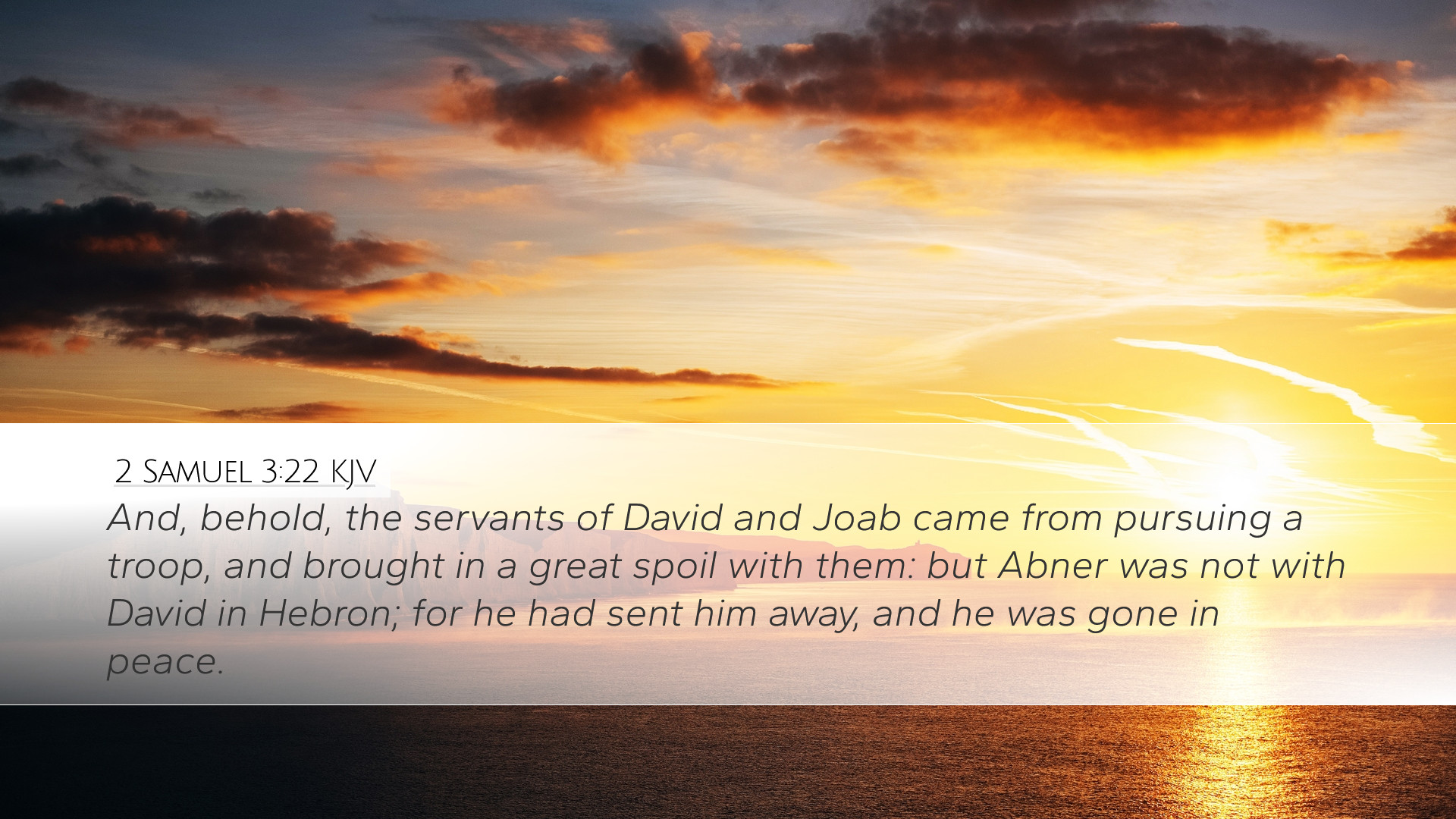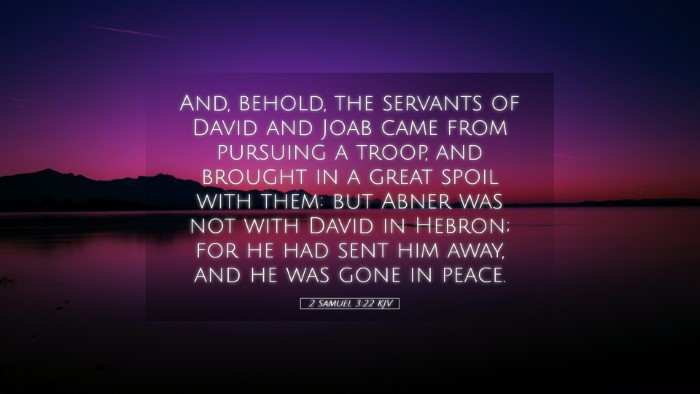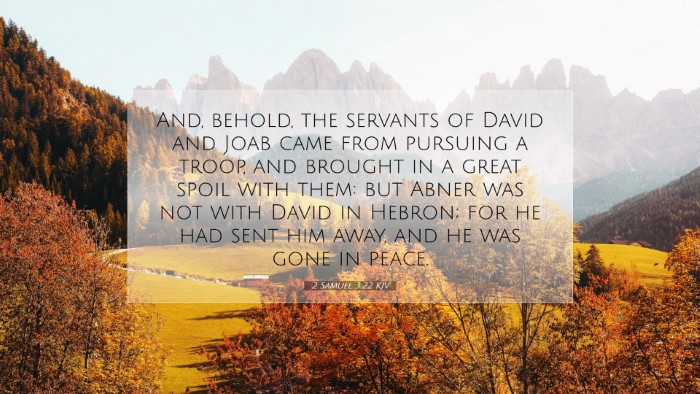Commentary on 2 Samuel 3:22
Verse: "And behold, the servants of David and Joab came from pursuing a band of raiders, and brought in a great deal of spoil with them. But Abner was not with David in Hebron, for he had sent him away, and he had gone in peace."
Introduction
This passage captures a significant moment in the ongoing tensions and power struggles during the reign of David. It highlights the dynamics of leadership, conflict, and the complexities of human relationships within the context of divine providence. This commentary integrates insights from various public domain sources to explore the theological, historical, and practical implications of 2 Samuel 3:22.
Context of 2 Samuel 3
The chapter narrates events during a turbulent time in Israel’s history, where the nation is divided following the death of Saul. David is consolidating his authority in Hebron while Abner, Saul’s commander, leads the opposing forces. This clash sets the stage for the intricate relationship between David and Abner, reflecting the broader theme of divine sovereignty working through human affairs.
Commentary Insights
1. The Role of Abner
Commentators highlight Abner's role as both a military leader and a political figure. Matthew Henry notes that Abner carried significant influence over Saul's house and saw himself as a protector of Saul's legacy, yet he ultimately recognized the inevitability of David’s kingship. His departure from David, which is emphasized in this verse, serves as a moment of both peace and tension.
2. David's Strategy
Albert Barnes indicates that David’s engagements with Abner were strategic, aimed at unifying the nation. By sending Abner away in peace, David aimed to position himself as a gracious and wise leader, contrasting with the ongoing hostility in Israel. This strategic move was not merely political but also reflected David's commitment to divine principles of peace.
3. Joab’s Role
Joab's return brings forth the juxtaposition of peace and conflict. Adam Clarke discusses Joab as both a loyal servant and a fierce warrior, representing the martial aspect of David’s reign. The spoil from Joab's raid signifies the ongoing conflict and the violent realities of establishing a kingdom, emphasizing the complex nature of leadership that David navigated.
4. Divine Providence
The absence of Abner in the face of David's rising power illustrates divine providence at work. According to Henry, Abner's decision to align with David stems not just from military strategy but also from a recognition of God's hand in the situation. This moment serves to remind readers that God is orchestrating events even through the motivations of leaders.
Theological Reflections
This verse encourages deep theological reflection on the nature of leadership within a divine framework. David’s actions, contrasted with Joab's military tactics, paint a picture of how godly leadership should navigate through personal ambition and public responsibility.
Human Relationships
The complexities of David and Abner’s relationship serve as a metaphor for reconciliation in human dealings. The peaceable dismissal of Abner posits a lesson on the significance of peace in relational dynamics, suggesting that true leadership involves the ability to manage conflicting interests while upholding integrity.
Historical Significance
The implications of this passage extend beyond personal relationships; it speaks to the broader political climate of early Israelite society. The events foreshadow future conflicts but also lay the groundwork for eventual unification under David. Understanding this narrative helps students and scholars appreciate the historical context that shaped the nation of Israel.
Applications for Today's Leaders
- Integrity in Decision-Making: Leaders must maintain integrity, weighing their decisions against moral imperatives, much like David balanced his military concerns with a commitment to peace.
- Understanding Conflict: Recognizing the nature of conflicts, both personal and public, can help leaders develop strategies that prioritize divine justice over personal gain.
- Reconciliation over Rivalry: In today's highly polarized environments, the act of seeking peace and understanding, as demonstrated by David, stands as a powerful model for contemporary leaders.
Conclusion
2 Samuel 3:22 encapsulates a pivotal moment in the larger narrative of David’s rise to power. Its implications resonate today, offering lessons in leadership, human relationships, and divine providence. As pastors, students, theologians, and scholars reflect on this verse, it is essential to glean insights that not only enhance understanding but also inspire practical applications in various contexts of life and ministry.


